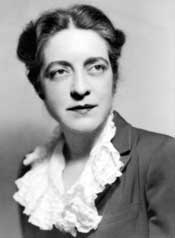Melba Phillips
| Melba Phillips | |
|---|---|
 |
|
| Born |
February 1, 1907 Hazleton, Indiana |
| Died | November 8, 2004 (aged 97) Petersburg, Indiana |
| Doctoral advisor | J. Robert Oppenheimer |
| Notable awards | Oersted Medal (1974) |
Melba Newell Phillips (February 1, 1907 – November 8, 2004) was an American physicist and science educator. She completed her doctoral studies under J. Robert Oppenheimer and was also known for refusing to testify before a U.S. Senate Judiciary Committee's subcommittee on internal security, leading to her dismissal by Brooklyn College.
Melba Phillips was born on February 1, 1907 near Hazleton, Indiana. She graduated from high school at the age of 15 and went on to study Mathematics at Oakland City University in Indiana, graduating in 1926. She received a master's degree in physics from Battle Creek College of Michigan in 1928 and her doctorate in physics in 1933 at the University of California, Berkeley.
Phillips's supervisor at Berkeley was J. Robert Oppenheimer, who would later become scientific head of the Allied atomic bomb effort, the Manhattan Project. Together they described the Oppenheimer-Phillips effect explaining the behavior of accelerated nuclei of radioactive hydrogen atoms in 1935.
Phillips took up her first teaching position at the Connecticut College for Women in 1937, moving on to Brooklyn College in 1938. While at the College she helped organize the founding of the Federation of American Scientists in 1945. During World War II she taught at the University of Minnesota, returning to Brooklyn College after the war. Highly regarded as a physics educator, she was fired from the College in 1952 when she refused to testify before the McCarran internal security subcommittee during the McCarthy era. Brooklyn College publicly apologized to Phillips in 1987.
...
Wikipedia
